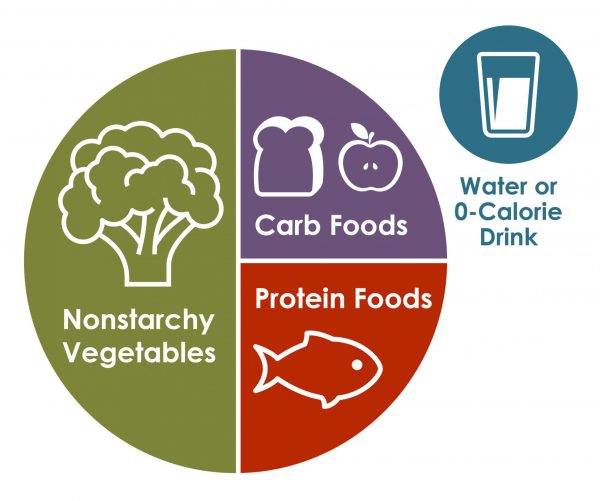By Jacqui Read, Health Communications Specialist IV
November is Diabetes Awareness Month. Learn what diabetes is, how to manage it, and tips for preventing it.
What Is Diabetes?

According to the CDC, diabetes is a chronic health condition that affects how your body turns food into energy after you eat. Most of what you eat is broken down into sugar or “glucose” and then released into your bloodstream, elevating your blood sugar. When that happens, it signals your pancreas to release insulin, which acts like a key to let the blood sugar into your body’s cells for use as energy.
When you have diabetes, your body either doesn’t make enough insulin or it can’t properly use the insulin it makes, and the result is that too much blood sugar stays in your bloodstream. Over time, that can cause serious health problems, such as heart disease, vision loss, and kidney disease. A simple blood test will let you know if you have diabetes.
Type 2 Diabetes
Nearly everyone (90–95%) with diabetes has type 2. It develops over many years and is usually diagnosed in adulthood. You may not notice any symptoms, so it’s important to get your blood sugar tested if you are at risk. Type 2 diabetes can be prevented or delayed with healthy lifestyle changes, such as losing weight, eating healthy food, and being active. Take this online test to find out if you are at risk for type 2 diabetes.
How Is Diabetes Managed?
For the most part, diabetes is managed by you, with support from your health care team, including your primary care doctor, foot doctor, dentist, eye doctor, registered dietitian nutritionist, diabetes educator, and pharmacist. There isn’t a cure for diabetes, but losing weight, eating healthy food, being active, and reducing stress can really help. Also, taking medication as directed, managing blood sugar, being prepared for emergencies, and keeping health care appointments can also reduce the daily impact of diabetes.
Self-management can make living with diabetes challenging, but the following tips can help—whether you were just diagnosed with diabetes or have had it for some time:
- Develop a healthy eating and activity plan
- Test your blood sugar and keep a record of the results
- Recognize the signs of high or low blood sugar and what to do about it
- If needed, give yourself insulin by syringe, pen, or pump
- Monitor your feet, skin, and eyes to catch problems early
- Buy diabetes supplies and store them properly
- Manage stress and deal with daily diabetes care

How Can Diabetes Be Prevented?

Diabetes can be prevented in the prediabetes stage. Prediabetes is a serious health condition where blood sugar levels are higher than normal, but not high enough yet to be diagnosed as type 2 diabetes. If you have prediabetes, losing a small amount of weight (around 5% to 7%) if you’re overweight and getting regular physical activity (30 minutes a day, five days a week) can lower your risk for developing type 2 diabetes. Approximately 88 million American adults—more than 1 in 3—have prediabetes and most (84%) don’t know they have it. Prediabetes puts you at increased risk of developing type 2 diabetes, heart disease, and stroke.
Because you can have prediabetes for years but have no obvious symptoms, it’s important to ask your doctor if you should be tested for prediabetes using a simple blood sugar test, especially if you have any of the following risk factors for prediabetes:
- Being overweight Being 45 years or older
- Having a parent, brother, or sister with type 2 diabetes
- Being physically active less than 3 times a week
- Ever having gestational diabetes (diabetes during pregnancy) or giving birth to a baby who weighed more than 9 pounds
- Having polycystic ovary syndrome
- Being African American, Hispanic/Latino American, American Indian, Pacific Islander, or Asian American as your race/ethnicity may put you at a higher risk

